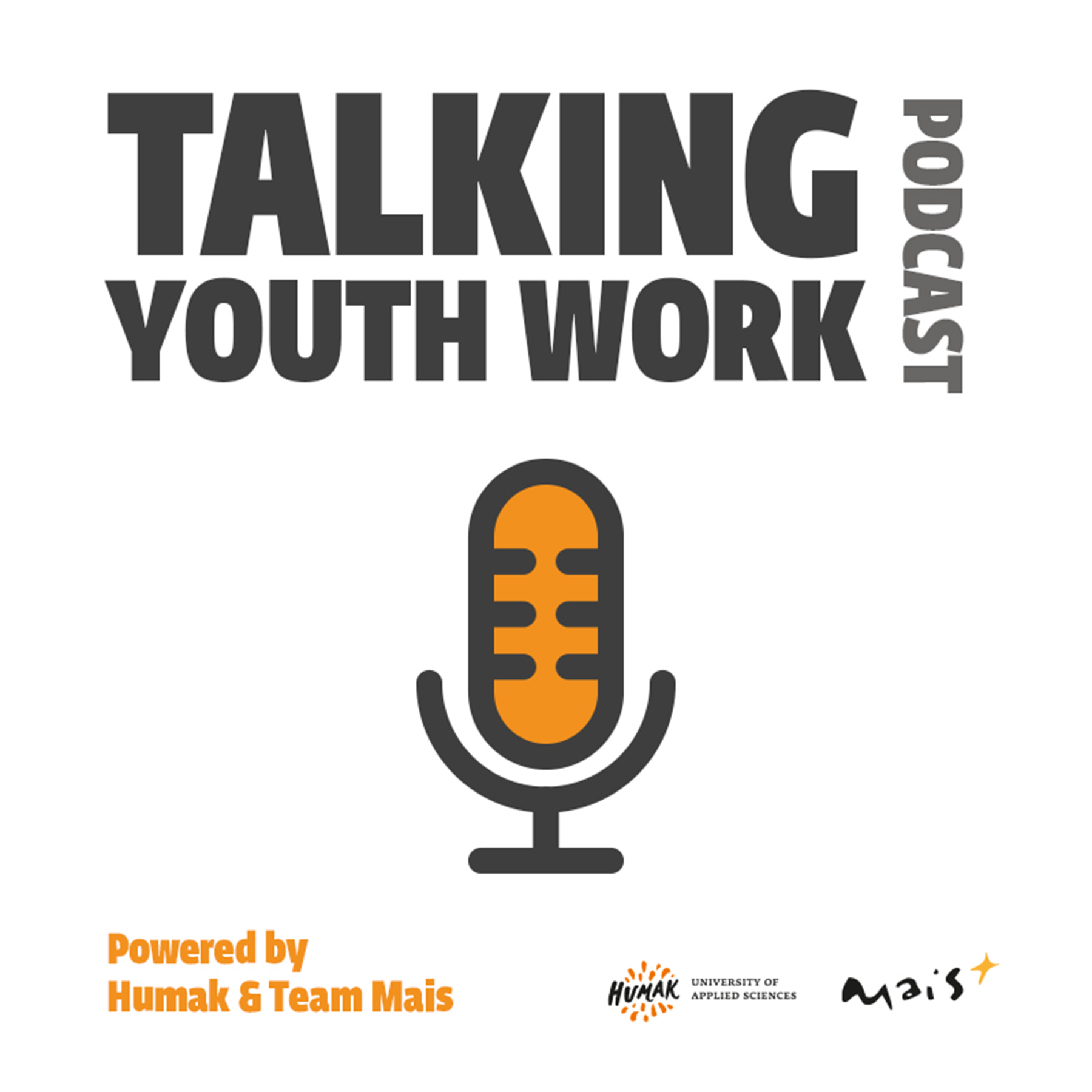Episodes
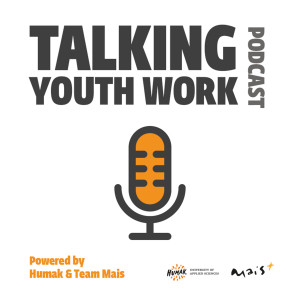
Monday Dec 21, 2020
Monday Dec 21, 2020
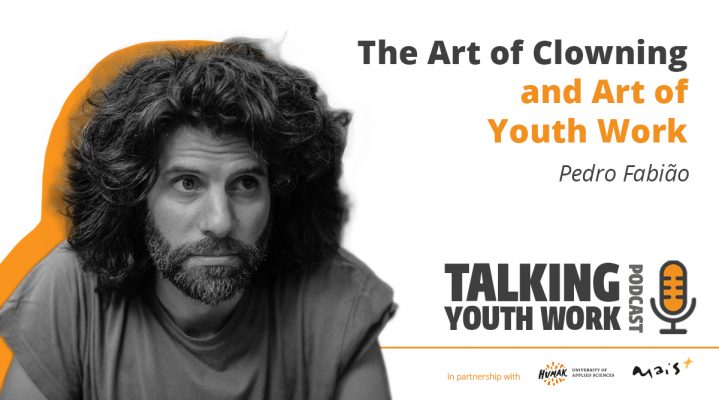
Hello dear listeners,
In this episode we talked with Pedro Fabião, an international clown, actor, director, trainer, and psychologist.
He directed the biggest professional clown organisation in Portugal (www.narizvermelho.pt), where he worked for 16 years.
The conversation was about the Art of Clowning and how it can help people develop empathy and self-awareness.
Clowns have had a function throughout the ages, as those that push the boundaries, that bring a different perspective. Their power is a counter power.
As Pedro pointed out during our conversation there is loads of diversity in the type of people that go to clowning workshops. It’s a wonderful tool to explore our creativity, to connect with our bodies, and mostly: to connect with others.
The principles of clowning can be useful in creating a “transitional field”, a place without real consequence and yet inscribed in reality. A reversible moment of exploration and endless possibilities. Clowns are experts in making mistakes, looking foolish or messing things up, but with the deeper wisdom of turning shortcomings into a celebration of humanity. So how we relate to failing can be helped by exploring our own clowns and creating physical and emotional safety for others to explore theirs.
Youth workers can engage with young people using this space where the boundaries of reality are expanded. Together, they can see further and deeper without getting overwhelmed or depressed by limitations, anything is possible outside the normal, failure is celebrated and that’s where the Art of Clowning can help.
Pedro Fabião website | https://bit.ly/3pdEd85
Resources
“Do That Funny Thing You Do” by Tara Brodin | https://bit.ly/38gJB3A
Facebook group with clown resources | https://bit.ly/2KoWkco
Developing Youth Work Innovation eHandbook | https://bit.ly/3gS1ZDw

Monday Nov 23, 2020
Making Green the New Normal with Antonio Jovanovski, season 2, episode 12
Monday Nov 23, 2020
Monday Nov 23, 2020
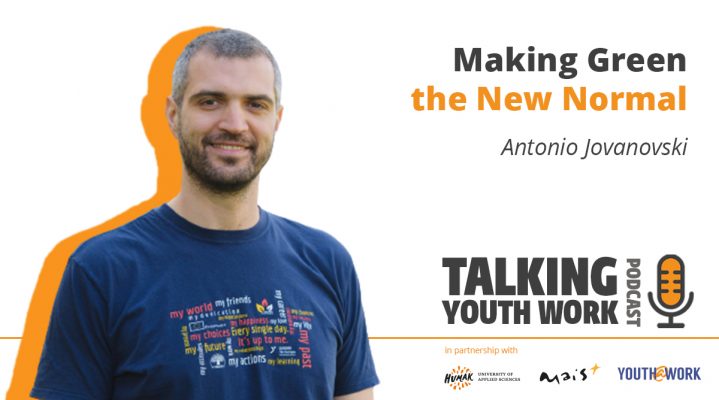
Hello dear listeners,
In this episode we go green. We talked to Antonio Jovanovski, a trainer, an activist and a social entrepreneur. He is a member of the Pool of trainers of Youth@Work partnership (www.youthatworkpartnership.org) and the founder of a youth environmental NGO (www.gogreen.mk) where he works on training and policy development related to youth eco-activism, education for sustainable development and social inclusion through the green economy. Antonio wrote a very interesting article about the upside of going green in job creation, and the cost of not doing so. You can find the article here. (https://bit.ly/32RUqan)
We are in a time to make decisions and - as Antonio pointed out during our conversation - decisions need reflection, visions of what the future could be like, and the awareness that the decisions we take should ensure a sustainable future. Economic growth has been the measure of progress, and it has become an addiction, but it impairs the decisions that need to be made.
It’s a difficult battle specially for young people because they are the ones that will face the biggest challenges if nothing is changed, but lack the power and the engagement needed to have a say in the decision-making processes.
Youth workers could setup programs that are related to the green economy, where a green awareness is used as a strategy to make decisions that empowers young people to disconnect with the virtual world and connect to real life and worthy causes in which their future depends on.
Below are the Youth@Work contacts. You can be part of this initiative.
Facebook: @YouthatWorkPartnership
Instagram: @youthatworkeu
Twitter: @euyouthatwork
Youtube: YouthatWork Partnership
LinkedIn: YouthatWork Partnership
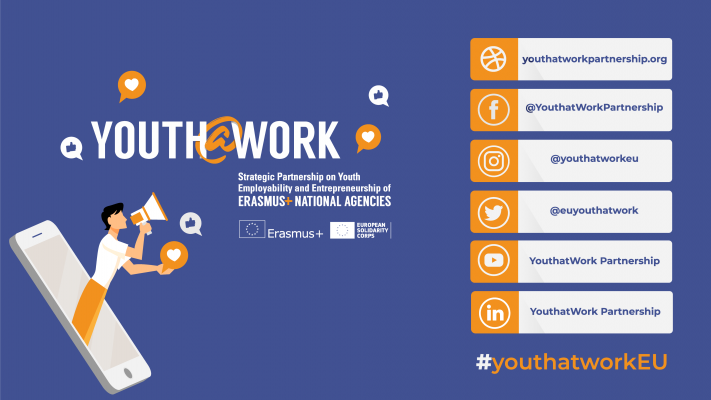
The Youth@Work partnership is delivered with the support of the Erasmus+ programme of the European Union". The European Commission's support for the production of this podcast does not constitute an endorsement of the contents, which reflect the views only of the authors, and the Commission cannot be held responsible for any use which may be made of the information contained therein.”

Monday Oct 26, 2020
Measuring Impacts with Elin Mcallum, season 2, episode 11
Monday Oct 26, 2020
Monday Oct 26, 2020
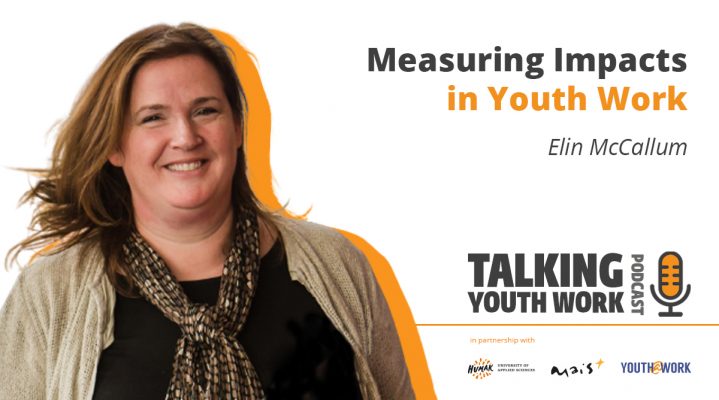
Hello dear listeners,
We are joined in this episode by Elin McCallum, one of the co-founders of Bantani Education, a non-profit organisation supporting entrepreneurial and creative learning. Elin is also a member of the Youth@Work Pool of trainers.
One of the topics of our talk was how to measure impact in youth work, from the example of the Youth@Work Partnership. We also talked about a model of entrepreneurial competencies (Entrecomp), and the immediate connection that most people make that entrepreneurship is about creating your company or being a founder of a startup, but Elin explained quite well that being entrepreneurial is the ability to act, to create value. Once again, we talked about the need to understand risk, to be adaptable and flexible in fast paced times, and the role youth work and youth workers have in helping young people to develop those skills.
We discussed something we find very relevant, and that is the need of the youth work field to understand the real value that it is bringing and communicate it properly, because a lot of the competencies we talk about and around being entrepreneurial are already instilled in the work of youth workers, but due to lack of awareness and clarity is not being owned the way it could and should be.
Bantani Education Website - https://bantani.com/
Below are the Youth@Work contacts. You can be part of this initiative.
Facebook: @YouthatWorkPartnership
Instagram: @youthatworkeu
Twitter: @euyouthatwork
Youtube: YouthatWork Partnership
LinkedIn: YouthatWork Partnership

The Youth@Work partnership is delivered with the support of the Erasmus+ programme of the European Union". The European Commission's support for the production of this podcast does not constitute an endorsement of the contents, which reflect the views only of the authors, and the Commission cannot be held responsible for any use which may be made of the information contained therein.”

Tuesday Oct 06, 2020
How to Facilitate Learning with Nik Paddison, season 2 episode 10
Tuesday Oct 06, 2020
Tuesday Oct 06, 2020
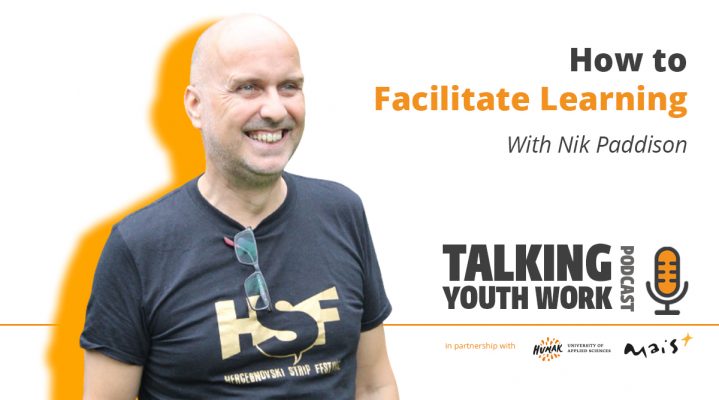
Dear listeners,
Hope summer treated you well. We did miss you, and we hope you are all doing well.
In this episode we talked to Nik Paddison from the UK, a trainer of trainers, youth workers and activists in the European youth field. For the last few years he has been working as a full time freelance trainer, writer and consultant.
The main topic was Facilitation of Learning and how it is a process that has to engage the learner if we want real learning to take place. We discussed that the idea of learning as the receiving of information is a misleading and incorrect one, learning must be an active experience where everyone is involved, interested and responsible for their own growth. The facilitator needs to observe the group carefully to understand the group dynamic and support each individual on their needs.
In this process, the power of reflection is sometimes overlooked, and if we want to have deeply engaging and rich learning experiences we need to have time to reflect on what message was communicated to us, how it relates to our previous knowledge, what parts were less clear and how we can ask for help from others. By doing so not only you learn more about the subject but also about yourself as a learner.
Very rich and insightful conversation, that we hope you enjoy, reflect and learn as much as we did.
Let’s Talk Youth Work.
Links to the resources mentioned in the episode:
Mark Taylor's episode: https://bit.ly/3nmVXxG
Developing Youth Work Innovation, E-handbook.https://www.humak.fi/en/julkaisut/youth-work-innovation/
The Handbook for Facilitators (learning to learn in practice): https://bit.ly/3jAcnk7
One to One (supporting learning face to face): https://www.youthpass.eu/downloads/13-62-276/Publication_121_Final.pdf
Time to Show Off (how youth workers accompany young peoples learning processes): https://bit.ly/3nnRPNO

Monday Jul 27, 2020
Monday Jul 27, 2020
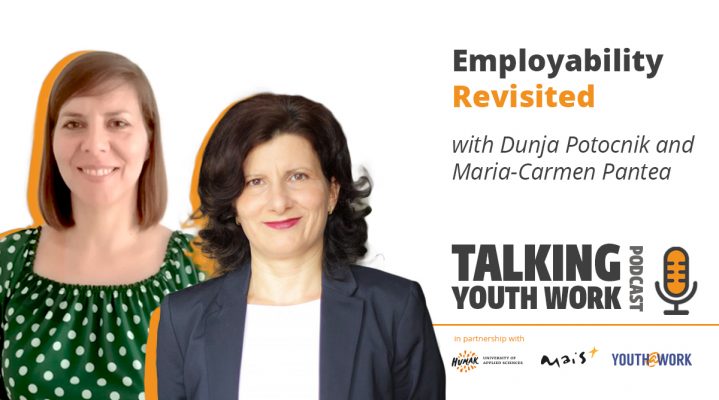
Hello dear listeners,
In this episode we talked with Maria-Carmen Pantea and Dunja Potočnik, members of the Pool of European Youth Researchers (PEYR) who did important research in the field of youth employability and entrepreneurship for the Youth@Work Partnership.
Our conversation covered some of the tensions that the youth field faces regarding youth employability.
Although the younger generation is more educated, they are at a bigger risk of becoming impoverished or socially excluded, due to job market dynamics. Society expects a leading role from the youth field when it comes to developing young peoples' soft skills and professional competences, but sends conflicting messages by not listening to their opinions and experiences - as well as the opinions of those who work directly with young people - when drafting the employment policies that will affect their future.
"Only less than ⅓ of NGO's working in the areas of youth and employment get consulted when it comes to policy development in these areas."
On one hand, policymakers need to put greater trust in the capabilities of young people and NGO's in the youth field regarding their inputs to employment and entrepreneurship policies. On the other hand, youth workers also need to question their position regarding these topics.
As youth workers, where should our focus be? In helping young people navigate the job market? Or advocating for more inclusive and fair employment policies?
We sure learned a lot about this topic, and we invite you to listen and learn also.
Let's talk about youth work!
The Youth@Work’s book:
Short link: https://bit.ly/3jM9ooW
The book published by Maria-Carmen Pantea in 2019:
Precarity and Vocational Education and Training. Craftsmanship and Employability in Romania
Short link: https://bit.ly/3g8oGCr
The “Young people, entrepreneurship & non-formal learning: a work in progress” book edited by Maria-Carmen Pantea and published by the SALTO-YOUTH Participation Resource Centre (Belgium) in 2014
Short link: https://bit.ly/3jJ5mhc
Below are the Youth@Work contacts. You can be part of this initiative.
Facebook: @YouthatWorkPartnership
Instagram: @youthatworkeu
Twitter: @euyouthatwork
Youtube: YouthatWork Partnership
LinkedIn: YouthatWork Partnership

The Youth@Work partnership is delivered with the support of the Erasmus+ programme of the European Union". The European Commission's support for the production of this podcast does not constitute an endorsement of the contents, which reflect the views only of the authors, and the Commission cannot be held responsible for any use which may be made of the information contained therein.”

Friday Jul 03, 2020
Friday Jul 03, 2020
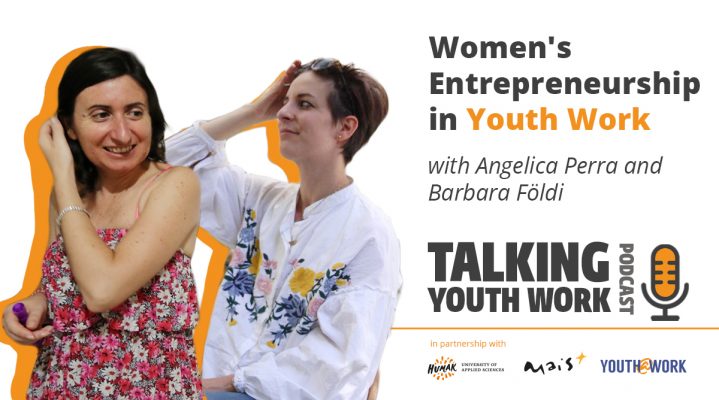
Hello dear listeners,
In this episode, we talked with two very interesting women entrepreneurs: Angelica Perra and Barbara Földi, who are part of the Pool of Trainers of the Youth@Work Partnership that has placed women's entrepreneurship and economic empowerment among their 9 priorities - https://youthatworkpartnership.org/priorities/.
Angelica is one of the co-founders of TDM, an Italian NGO with a simple and ambitious idea: to help young people from all over Europe to meet and collaborate on the common ground of intercultural dialogue and active citizenship. Barbara Földi is the the owner of ReCreativity, a social enterprise, based in Budapest Hungary, that provides programmes to promote creative solutions for sustainable lifestyles.
We talked about what it means to be a woman entrepreneur caring out initiatives in the field of youth work. They shared the challenges they faced and the advice they have for other youth workers who want to either start their own projects or help young people in that process.
They gave us excellent, honest advice based on their experiences and we hope you enjoy it as much as we did.
Angelica Perra links:
https://it-it.facebook.com/associazionetdm2000/
https://tdm2000international.org
https://www.facebook.com/TDMInternational/
Barbara Földi links:
http://recreativity.net/en/home/
https://www.instagram.com/tinyecoambassadors/
https://www.facebook.com/recreativityforyou/?ref=bookmarks
Below are the Youth@Work contacts. You can be part of this initiative.
Facebook: @YouthatWorkPartnership
Instagram: @youthatworkeu
Twitter: @euyouthatwork
Youtube: YouthatWork Partnership
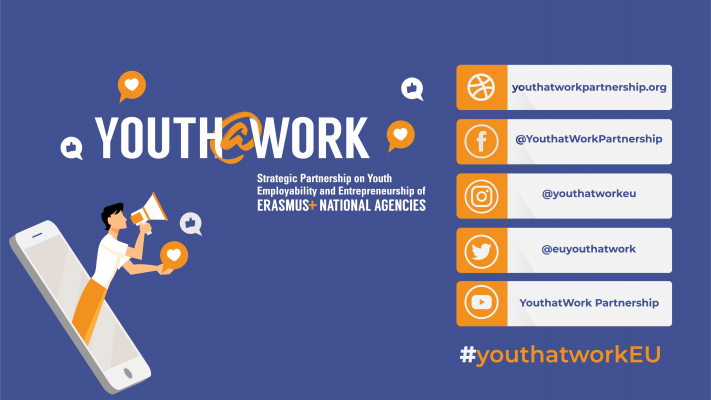
The Youth@Work partnership is delivered with the support of the Erasmus+ programme of the European Union". The European Commission's support for the production of this podcast does not constitute an endorsement of the contents, which reflect the views only of the authors, and the Commission cannot be held responsible for any use which may be made of the information contained therein.”

Wednesday May 27, 2020
Entrepreneurial competencies with Raluca Diroescu, season 2 episode 7
Wednesday May 27, 2020
Wednesday May 27, 2020
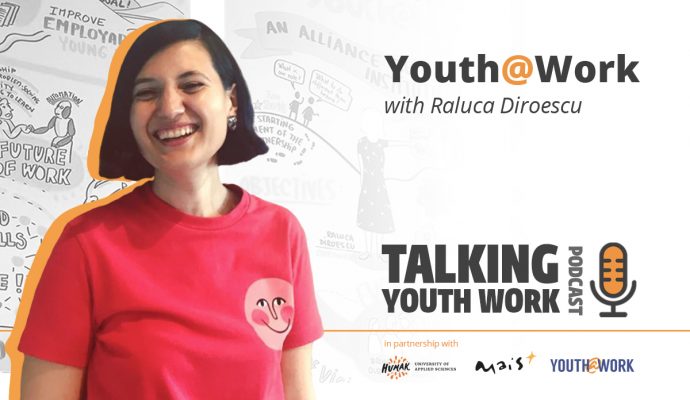
With this episode we are starting a special season powered by Youth@Work, a Partnership on Youth Employability and Entrepreneurship of Erasmus+ National Agencies .
In this episode we talked to Raluca Diroescu, the coordinator of Youth@Work.
Raluca likes to call herself a youth work supporter. A person that supports youth work like a fan that wants the team to win. Her love for youth work started during a youth exchange and we talked about the importance these projects have as they create in young people the willingness to participate in the construction of shared European values.
We talked about the events that Youth@Work promotes, as platforms that enable entrepreneurial learning through knowledge sharing, capacity building and networking.
In these events - that gather representatives from different sectors - the idea is to connect, to find points of contact, but also to challenge all the participants to see their own issues through different lenses.
Youth work and entrepreneurship as concepts are thought by some to be at odds with each other. For Raluca, these two ideas can coexist and even thrive when combined to reach a common goal: youth empowerment. If we can equip young people, especially those with fewer opportunities, with real-life opportunities, an entrepreneurial spirit and competences, maybe they can start to look for ways to rise above those inequalities.
Below are the Youth@Work contacts. You can be part of this initiative.
Facebook: @YouthatWorkPartnership
Instagram: @youthatworkeu
Twitter: @euyouthatwork
Youtube: YouthatWork Partnership
Let’s Talk Youth Work!

The Youth@Work partnership is delivered with the support of the Erasmus+ programme of the European Union". The European Commission's support for the production of this podcast does not constitute an endorsement of the contents, which reflect the views only of the authors, and the Commission cannot be held responsible for any use which may be made of the information contained therein.”

Monday May 04, 2020
Youth Work after COVID-19 with Laimonas Ragauskas, season 2 episode 6
Monday May 04, 2020
Monday May 04, 2020
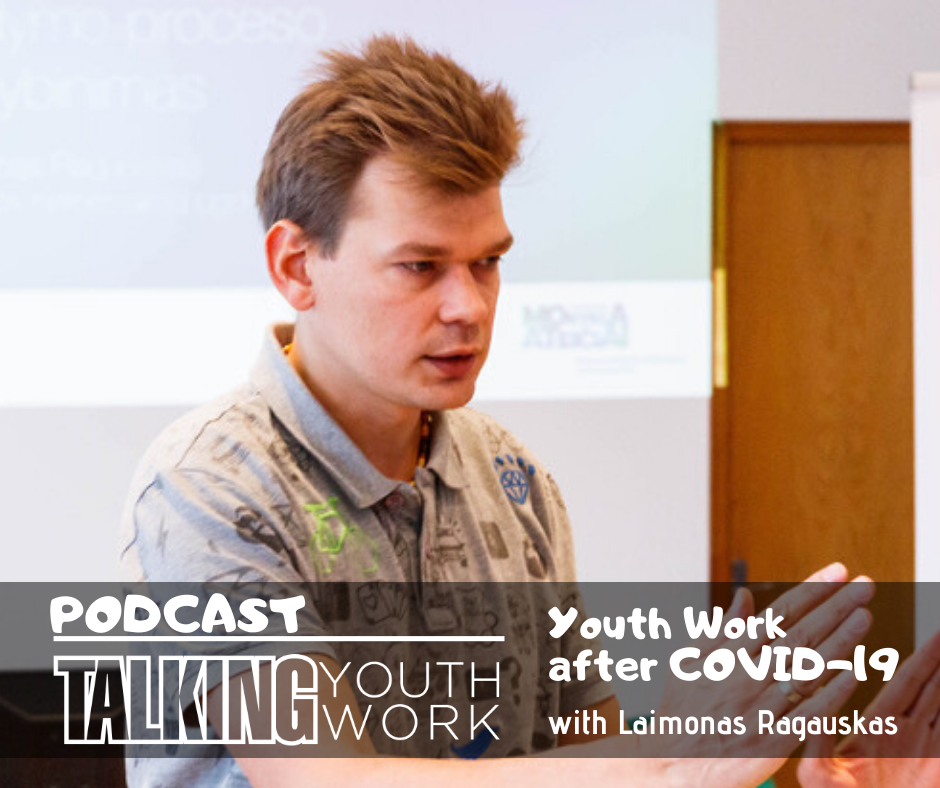
Hello dear listeners,
In this episode we talked to Laimonas Ragauskas, a Lithuanian trainer and consultant in the field of Education, who has been involved in innovative online projects like Cities of Learning, Trainers Appraisal and Badgecraft.
We are living a particular time with the COVID-19 pandemic and all the lockdowns around the world, so it made sense to talk about the digital acceleration that all of us had to undertake, and the tools that Laimonas is involved are very attuned to the current situation we’re in.
We talked about possible solutions using what we know and what we can do, because, let’s face it, we have a lot of tools right now, and things aren’t going back to the previous “normal” anytime soon, so we focused on solutions and future scenarios. On what we can do.
This time is a very good opportunity to try new tools, experiment and trust that progress will be made regarding alternative – probably blended - ways to learn.
Youth work can have an important role in supporting this new reality, youth workers are where young people are, and online is one of those places. A long conversation that we enjoyed very much, pointing to hope and possibilities amongst the challenging times we are facing and that we will face in the near future.
Stay home and talk youth work with us!
Cities of Learning platform www.citiesoflearning.eu
Trainers’ professional development platform www.trainersappraisal.com
Badgecraft - a platform to design recognition systems www.badgecraft.eu

Tuesday Apr 07, 2020
Coyote Magazine with Mark Taylor, season 2 episode 5
Tuesday Apr 07, 2020
Tuesday Apr 07, 2020
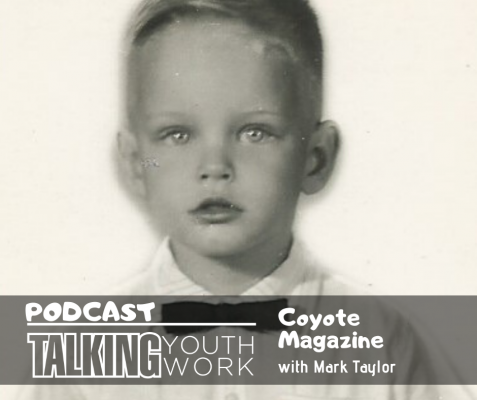
Hello dear listeners,
"To create community, we need channels where different stakeholders share their points of view.” Mark Taylor
Here is another episode that was a lot of fun to record. This time with Mark Taylor, editor of the only European online magazine focused on youth work: Coyote Magazine.
We wondered if youth workers live too much in their own bubble. This view - of youth work as a closed system - generates a dual thinking regarding youth work: on one hand the sector wants and needs more resources but, on the other hand, it doesn't always want to open up to the world.
Coyote Magazine as a channel of communication closes some gaps between actors inside youth work but also aims at opening youth work to the outside, by having writers from the political sphere, researchers and practitioners that work in the field, who share their stories, their experiences, their knowledge and their insights.
Coyote Magazine plays an important role at European level, in creating a place for ideas to spread, a place for different actors to discuss, collaborate and create a movement to make things move forward.
It's very important to have different points of view to create a broader and more inclusive image of what youth work is, and what it could be
If you want to read Coyote Magazine here are the links:
Coyote website https://pjp-eu.coe.int/en/web/coyote-magazine/home
Coyote Archive since 1999 https://pjp-eu.coe.int/en/web/coyote-magazine/previous-editions
Like and follow Coyote youth work magazine on Facebook https://www.facebook.com/CoyoteYouthWorkMagazine/

Wednesday Mar 11, 2020
The Power of Non Formal Education with Jo Claeys, season 2 episode 4
Wednesday Mar 11, 2020
Wednesday Mar 11, 2020
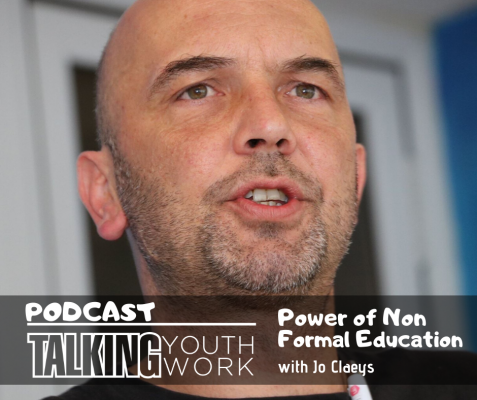
First of all is good to be back!
In this episode we talked with Jo Claeys, a youth worker and a trainer who together with Denis Morel and Simona Molari, developed the training "The Power of Non Formal Education".
We tried to better understand what is non formal education, how it relates to other types of education, the contact points with formal education, schools and what makes this type of learning so powerful.
Jo has a lot of experience and a curious point of view, as someone that is eager to explore all the potential of non formal learning.
This open approach to learning can help a lot of people that have difficulties with more formal types of trainings and education, it can become an exploratory experience where we take what we need instead of just passively accepting what is presented to us.
Where the freedom – and the responsibility – for learning is really in our hands.
Here are some resources that Jo shared with us, so that we could share with all of our listeners.
Video tutorials for less experienced in NFE
A approach on explaining the differences between formal, informal and non formal education
A comprehensive description of NFe with plenty of links to usefull educational resources
Any ideas, comments and suggestions, email us at talkingyouthworkpodcast@gmail.com.

